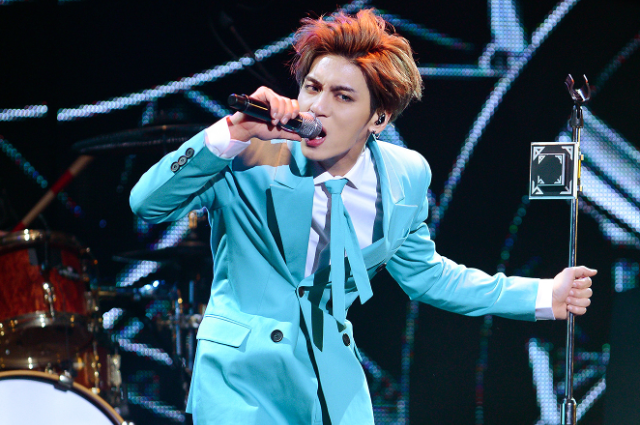K-pop is a type of popular music that originated in South Korea and is an important part of South Korean culture as there are a lot of big K-pop groups and soloists for instance BTS, BLACKPINK, IU, etc. K-pop has captured the hearts of millions with its catchy tunes, synchronised dance moves, and attractive idols.
However, there is a dark side to the glitz and glamour that many fans are unaware of. There are many things that an idol has to go through no matter how much fame they get. The rigorous training system in the K-pop industry is one of the most concerning aspects of the industry. Trainees as young as ten years old face arduous schedules and intense pressure to achieve perfection. This frequently results in physical and mental exhaustion, which can lead to health problems such as depression and eating disorders. Due to demanding training and performance schedules, high standards for appearance and performance, and constrictive contracts known as "slave contracts" that restrict their personal freedoms and financial resources, many artists in the industry suffer with their physical and mental health. These elements cause the industry to be extremely harmful to the celebrities that work in it.
One of them is not being able to have a social life and getting a lot of hate for having a social and dating life. Furthermore, idol exploitation by entertainment companies is a common problem in the industry. Many idols are contractually obligated for several years and have little control over their personal lives or career choices. They are frequently overworked and underpaid, while their agencies profit handsomely from their success. Most celebrities aren't allowed to date publicly or have "control over their own lives. Kwon Joon-won, an entertainment management professor at the Dong-ah Institute of Media and Arts, thinks that when K-pop stars make controversial statements, they should expect to lose half of their fan base. The industry has been criticised for sexualizing both male and female idols, with minors, in particular, being an issue of concern. Young female idols are especially vulnerable to peer pressure to dress provocatively or dance provocatively. The emphasis on appearance in K-pop and its effects on children and teenagers, particularly the pressure to undergo cosmetic surgery. Another concerning factor is the prevalence of sasaeng fans, which are obsessive fans who invade an idol's privacy by stalking them or even breaking into their homes. This invasion of privacy not only has an impact on the mental health of idols but also poses serious safety risks.
Suicide is one of the most common things happening in the K-pop industry. The reason suicide is leading in the K-pop industry is their mental health and a lot of pressure put on them. There are many K-pop artist who have spoken about the pressure they have to face being in this entertainment industry. Suga of BTS discussed his own mental health in an interview with Yonhap, saying, "Anxiety and loneliness seem to be with me for life...Because emotions differ in every situation and every moment, I believe that agonising over every moment is what life is all about”. No matter how much love and praise they receive from their fandom, they are mostly bullied and trolled for even a small action they do or say. The suicides of prominent Korean pop artists have contributed to attention to industry pressures. Charles Park, also known as Seo Ji-won, died by suicide in 1996, just before the release of his second album, at the age of 19. Kim Jonghyun, who previously talked publicly about his depression, also committed suicide in December 2017. A number of renowned Korean musicians took part in a free concert series in the spring of 2018 to raise awareness regarding suicide prevention. Cyberbullying is on the rise in the K-pop community. Idols are subjected to online slander and malicious rumors, which can have a negative impact on their self-esteem. The lack of privacy exacerbates the problem because they are constantly scrutinised by the public. In 2019, the apparent suicide death of Sulli, subsequently followed by the death of Goo Hara, after both were the victims of cyberbullying, fueled calls for reform. Moonbin's apparent suicide death in 2023 renewed scrutiny of the highly competitive world.
The industry's high rate of exploitation is another worrying feature. Young trainees are sometimes bound under long-term contracts without enough protection or recompense from their employers. These contracts, which regulate every element of an idol's life, including their dating life and private actions, can be incredibly onerous. In addition, a great deal of sexual harassment and abuse inside the sector has been reported. When celebrities made accusations against their managers or other artists, they were met with criticism rather than encouragement.
In conclusion, those involved in Kpop conceal a darker reality from the outside, despite the fact that it may appear to be a glittering world. While exploitation and abuse are still commonplace in the profession, the pressure to maintain an ideal image has a negative impact on mental health. It is imperative that fans understand these problems and push for reform to create a more positive atmosphere in K-pop. The demands and expectations placed on Korean pop idols by their profession continue to be a major source of harm to their physical and emotional well-being. But as fans have gotten more involved in supporting these artists and businesses have become more receptive to public criticism, especially when lawsuits are filed against them, idols are beginning to gain authority and independence and contracts are getting softer, which means that restrictive slave contracts are becoming less common. Although the trend needs more research, it may eventually mean that idols will have more flexibility to live a normal life and that the pressures in Korean pop will become more reasonable and supportive of their needs as their careers progress.

